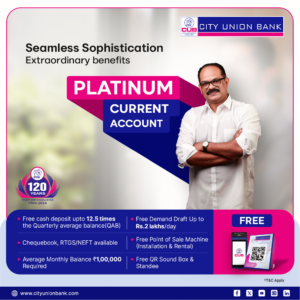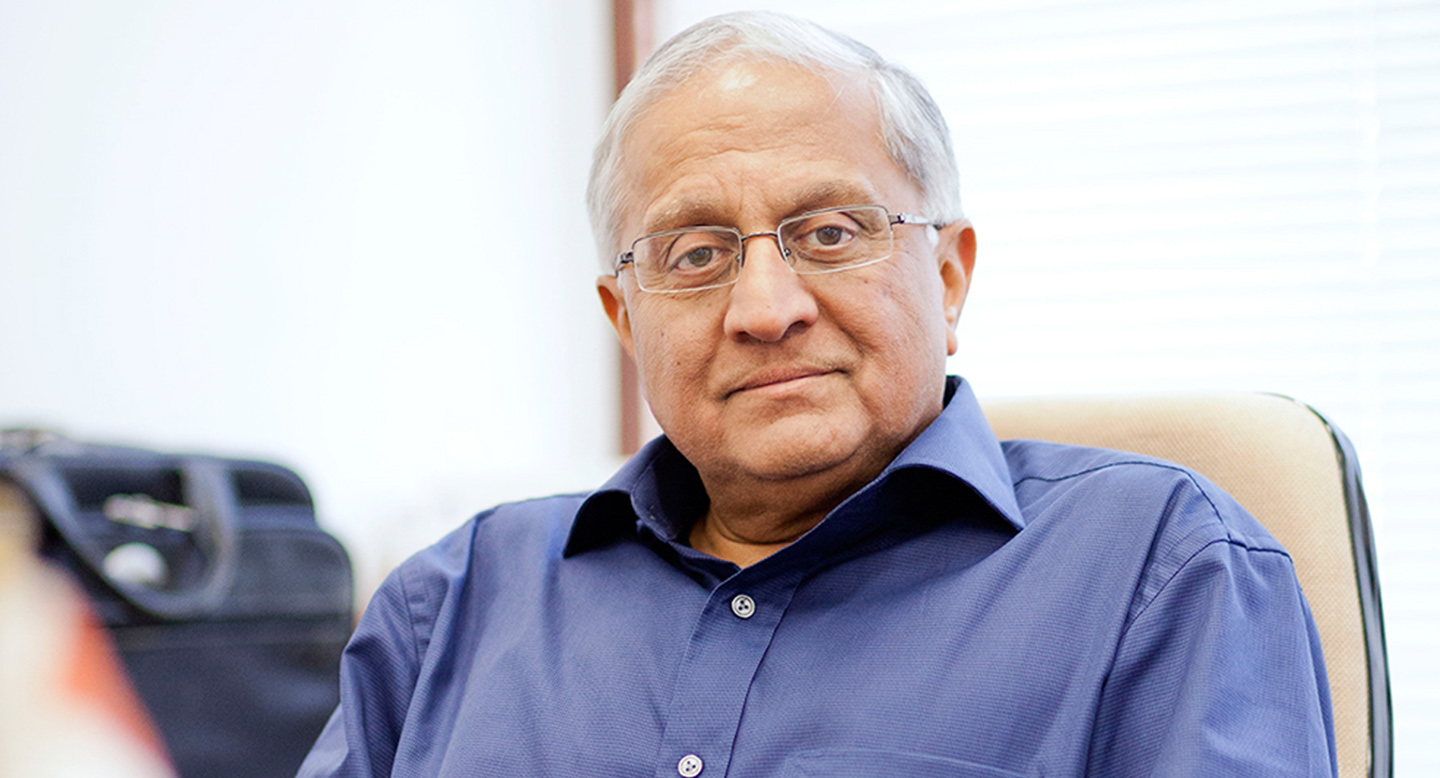Gopalakrishnan, Former Director, Tata Sons, the promoter company of various Tata Group companies, shares with us anecdotes and lessons learnt from his 45-year-long career as a professional manager. He believes these stories will enable managers to reminisce about aha! moments from their own lives or careers and more importantly, learn from these recollections.
As part of the “Best of the Smart CEO Series”, we’re republishing old yet timeless interviews from the past. We believe the learnings from these conversations are still valid today in 2024.
It was a cloudy day in the coastal city of Mumbai. The city was gearing up for the various New Year’s Eve celebrations across town. I flagged a black-and-yellow cab and requested the driver to take me to Bombay House. As we went past the Taj President in posh Cuffe Parade, my driver, Imran Khan, educated me about the Bombay House. He said, “It was built over 85 years back (in 1924).” And then promptly asked, “Are you going to the Ratan Tata Trust?” I mumbled and began to answer, but Khan was impatient. He went on to talk about the Trust and specifically, a particular medical grant it offers. I could sense his love for the Tata Group and quickly jotted down an additional question for R. Gopalakrishnan, director, Tata Sons and the person I was going to meet at the Bombay House.
I had a quick meeting with Amogh Thakur, my colleague and photographer in Mumbai, and we rushed to the fourth floor of the building. There was nothing spectacular about the architecture or the interiors; yet, I was excited to be there. I glanced at Amogh and he said: “Isn’t there an aura about this place?” There certainly was. After all, we were at the building that housed the offices of Tata Sons and its former chairman, Ratan Tata, the man under whom the group’s revenue grew several times to reach US $100.09 billion (approx. Rs. 4,75,721 crore) in 2011-2012 from just Rs. 11,000 crore in FY 1991, when he took over. (Today, there are 29 publicly listed Tata Group companies with a combined market capitalisation of ₹31.6 trillion (US$382 billion) as of 8 March 2024).
Soon, Gopalakrishnan briskly walked out of his room, exchanged greetings with all of us and we settled down for the interview. Within the first few minutes of the meeting, I could sense a mixture of humility and confidence in the man. He carried the demeanour of someone in the midst of a fulfilling career – as a professional manager, mentor and teacher. Of course, he’s also an author who is now famous for his three books – When the Penny Drops, The Case of the Bonsai Manager and What the CEO really wants from You: 4 As – all wonderfully crafted to groom better leaders, managers and professionals. In all these books, Gopalakrishnan shares stories from his personal and professional life with the simple aim of helping managers and decision-makers get a perspective (in some cases, in hindsight) of various situations they may find themselves in.

As Amogh started clicking, we began the interview.
The Smart CEO (TSC): Please decode your thought process behind writing these books.
Goplakrishnan (RG): 25 years into my career, I started asking myself, why do leaders fail? Several people go all the way up, become vice-presidents and CEOs and then come tumbling down. There are several examples of people who have failed after becoming leaders. As it is in most companies, at Unilever and Tata, I have been brought up on a diet of performance appraisals. Did the system miss telling something important to these promising leaders while giving them feedback? After some careful thought to this question, I came to the conclusion that the enemy is within. The book, ‘When the Penny Drops’, deals with the aspect of self-awareness. It is crucial for managers, especially ones at the senior level, to be self-aware. In the western tradition, self-awareness is an “early career” skill. In my view, and in the Vedantic tradition, it is a “late career” skill.
My first book – The case of the Bonsai Manager – focused on the power of intuition in decision-making. I have seen several analytically smart people develop a disdain for intuition. In the book, I narrate an experience I had as the CEO of Unilever Arabia and it is something that convinced me about the importance of listening to your gut. In reality, for several key decisions in our lives we intuitively use intuition! You marry someone because it feels right. You get into a particular business simply because it seems like the right thing to do, not only because you have researched and analysed the various business opportunities you had. I would urge managers to listen to their gut after exhausting the powers of analytics.
My latest book -What the CEO really wants – puts more perspective on the boss-subordinate relationship. Is your life and career a matter of obligation or privilege? The HR folks might make you feel like you are the smartest person in the room. That’s when horns spring out of your head. You sometimes start thinking that the company is privileged to have you there. In reality though, your career is rooted in the crucibles of obligation. If you see your boss as a client or a customer rather than as a boss, you stop cribbing. You do your job and stop expecting your boss to behave in a perfect way.

At a broader level, all my books, put together, deal with three aspects of one’s life and career – self-awareness, obligation and intuition. A reader once said all this is just common sense. It’s true. The trouble with life and career is that common sense is uncommon. The goal is to see if I can convert my real life experiences into something teachable, especially helping people learn what is often not taught. I am convinced that all these experiences I’m sharing lead to aha moments – ones that lead to learning.
TSC: In your book ‘When the Penny Drops’ you talk about how one becomes aware of the dark spots in ones personality when somebody close to you holds a mirror (in the book you call it the Clementine mirror) to your behavior and you look deep inside it. You even go on to narrate the letter written by Clementine Churchill, the wife of Sir Winston Churchill, who tells her famous husband to give orders with more kindness and not fall into the ‘I am better than others’ trap. How does one solicit real, explicit feedback as they go up the corporate ladder?
RG: I think there are two key aspects here. Once you reach the top, there are very few people who are willing to give you real feedback about your flaws. The higher you go, the more isolated you become. At senior levels, I would urge people to seek out their Clementine. It could be your spouse or your parents or anyone else who is close enough to give you real, explicit feedback. The second aspect deals with training your mind to receive feedback.
TSC: At the Tata Management Training Centre (TMTC) you look at leadership using a three-circle framework: the inner world of a person, the world of relationships and the world of getting things done. How did they arrive at such a structure?
RG: In the 1980s, Centre for Creative Leadership in North Carolina had conducted an in-depth study on what makes leaders, leaders? They went about the study taking into consideration more the experimental aspects rather than just statistical aspects. They asked about 200 leaders questions like what happened to you? What did you learn from what happened? At the end of the study, one of the key conclusions drawn was that people go through a do-learn, do-learn cycle through their career. It is important to understand that by itself thinking doesn’t lead to much learning. Also, from the same experience, different people learn different things.
If three people go out swimming in rough waters, depending on the mental makeup of the person, each one will draw an independent conclusion. One person may say I will never do that again while another person may say I will be prepared with the right gadgets next time. The third person may decide to learn to swim so well that he wouldn’t need the gadgets. The fundamental point here is that we need to let people swim in the rough waters. When they do that, they learn.
In our training at TMTC, the faculty thought that they needed to add structure to the whole process of training. As a simple metaphor, they created this artifice of three worlds. My world deals with my anxieties and my family. You cannot take out the personal life out of leadership training. Two, whatever work you do, you need to get some stuff done. How you make progress is the second world. Finally, the world of relationships deals with your team, your boss and other stakeholders and all the communication that needs to take place with them. Whoever you are, you move in and out of these three worlds. This kind of structure helps managers think very clearly about how they should conduct themselves.
TSC: In the book ‘What the CEO really wants from You: 4 As’ you deal with the question – How can I be a good subordinate? Why this topic?
RG: We have tons of books about very successful leaders. In these, we often read about behavioural traits in leaders. It is quite common to even mimic them. But, is it prudent to do so?
If you’re someone who has never picked up a tennis racquet before, would it be right for that person to hold the racquet like Goran Ivanesivic while serving simply because Goran’s serve was great? Coaches will teach you the basics first – front foot forward and hit the ball parallel to the ground. They will let you do your gimmicks with the racquet later. The goal of the book is to coach young professionals and help them understand the basics.
In general, there are a large number of disengaged employees among many corporations. As is often discussed, people leave their boss, not the job. And in marriage, the divorce rate is going up. We can’t just say, let the divorces continue, instead, we need to figure out how to reduce the divorce rate between the boss and the subordinate as well as with marriage!
The fundamental problem here is the asymmetry in the relationship. The subordinate expects many different things – feedback, empowerment, coaching, transparency, recognition, opportunity, clear tasks, access and respect for personal time – from his boss. On the other hand, the boss expects the following from his team – 100 per cent effort, loyalty, honesty and get-it-done results. Once you look at your boss as a customer, you stop focusing on his flaws. Instead, you work towards satisfying your customer. Overall, a healthy relationship between a leader and his or her subordinates is crucial for building a successful career. The book lays down a framework for building this healthy, long-term relationship.
TSC: How do you get your people – employees, customers and other stakeholders – to love your company and brand? What does the Tata Group do right in this regard? (This is the question I added after my conversation with Imran Khan, the cab driver)
RG: At some level, I would compare companies to people. In cricket, say, someone hits a double century, and then in the post-match interview talks with humility and stays genuine, you like that guy. If the guy carries an attitude, you don’t like him. In relationships, if you are genuine to your spouse, she would love you for that, but if you just buy her flowers every day, she would say stop wasting money. I think people will love your brand, your company for the same reasons. One of the keys to getting this right is to engage in powerful conversations with your stakeholders. These days, unfortunately, managers don’t have time for such conversations. That needs to change.
“A reader once said all this is just common sense. It’s true. The trouble with life and career is that common sense is uncommon.”
![]()
TSC: Please narrate for our readers a learning experience you have had as CEO of Unilever Arabia. What did the experience teach you that you would like to share with managers?
RG: As soon as I joined Unilever Arabia as its CEO, I had to fulfill the mandate of entering the washing detergent business in the Arabian Peninsula. In spite of Unilever’s presence in Skin Care, Personal Wash and Tea, launching a detergent product was very important. After launch, we would be competing with P&G Arabia, so we had to do something very different to win against a powerful competitor.
Even before I joined the team, market research had been done and a report had been prepared that detailed the kind of detergent we were going to launch. In the 1980s, traditional detergent powders were made of balloon-like particles – washing molecules floating in bubbles of air. This meant that detergents were packed in large boxes and companies spent more money on transportation and storage. In Japan, a revolution happened in the detergent business and a new kind of product was launched minus the air. This meant the powder was packed in compact boxes and transportation and storage costs were lower. Research suggested that this would serve as a huge differentiation for the brand while battling with P&G.
“If three people go out swimming in rough waters, depending on the mental makeup of the person, each one will draw an independent conclusion. One person may say I will never do that again while another person may say I will be prepared with the right gadgets next time. The third person may decide to learn to swim so well that he wouldn’t need the gadgets. The fundamental point here is that we need to let people swim in the rough waters. When they do that, they learn.”
![]()
However, my gut feeling was that this wouldn’t work. In Jeddah, Riyadh and other cities in the region, people preferred everything big, be it cars, toys or in my mind, detergent boxes. Moreover, in an economy where fuel was cheap, I wasn’t sure the cost difference made such a big difference. In spite of all that the research reports said my intuition was that this wouldn’t work. There was one other risk – we had to build a new factory to manufacture the compact detergent. For the traditional one, there were third party manufacturers from whom we could source the detergent.
I decided to argue my case (based on gut feeling) against what was suggested in the research report. Along with a colleague, Alex Abraham, I went to Unilever House in London to meet with the regional director and global detergents director.
We arrived at a compromise. It was decided that we would launch the traditional detergent first, but we would also build the factory to make the compact detergent a little later. In hindsight, I know that my intuition was right and it was correct to launch the traditional detergent. However, it was not wise to agree to the compromise. The factory we had built became idle because the market for the concentrated detergent developed to be negligible.
If I were to reflect on this story through the three-world framework, I would say in my world, as a first-time company CEO I had to get it right. In the world of relationships, I had to communicate with my boss to let him know I was doing the right thing. In the world of getting things done, a grand, successful launch was crucial. Going with my intuition and taking the step of arguing my case with my bosses turned out to be right. Since then, I have always reflected on how research and analysis compares with the role played by intuition.
The lesson I would like to share with managers and entrepreneurs here is pay attention to the three worlds you’re in and never ignore your gut feeling.
TSC: What is the best advice you have ever received?
RG: When I was about 40, I was promoted to become the director of Hindustan Lever Limited (HLL). Those days it was a big deal. Perhaps I was a bit cocky at that age! But within three months of the promotion, I detected a fraud in the department. If you’re a good manager, frauds are not supposed to happen in your department. It was a very tough time. I debated my options and thought about it for a while. I could dig deeper to find out what happened. Sometimes, the thing with frauds is you’re never sure if it actually happened so I thought I should find out more before blowing the whistle. I was utterly confused and met my mentor Bipin Shah for advice. He said: “Gopal, when you have a problem, share it. Business is like football. You need multiple players to score the goal.” I decided to notify my worry about a possible fraud in the department to my bosses. It counts amongst the best advice I ever received, and I would suggest every manager to keep this in mind: When you have a problem, share it.
As we were wrapping up, I couldn’t stop reflecting on the conversation I had just had. It reinstated the belief of what we are doing at The Smart CEO, sharing the experiences of various managers and entrepreneurs from across the country. Gopalakrishnan received a note reminding him about his next meeting. Amogh clicked the final set of photos for the cover of the magazine even as I was deep in thought about the various people I had interviewed in 2012. The range of topics, the sectors we had discussed and lessons we had culled from all our interviews – it certainly was a fulfilling year. On that high, I left Bombay House, with a smile on my face and the drive to build a magazine that people will, hopefully, love for a long time to come.
BOOK TITLE:
The Case of the Bonsai Manager
THE FOCUS:
The book focused on the power of intuition in the decision-making process and how senior business leaders can embed gut feelings into the process.
KEY TAKEAWAYS:
When we are presented with a problem, it is natural to put all your efforts on the issue at hand. However, looking at the ‘surroundings’ of the issue can be very helpful
In any organisation, a few people should be externally focused. Otherwise, the company will miss crucial signals and end up making wrong decisions
Once leaders reach a comfort zone, they tend to get lethargic. Constant threats and the focus on dealing with these keeps them on their toes and makes them a better leader
BOOK TITLE:
When the Penny Drops
THE FOCUS:
The importance of self-awareness and learning what is often not taught is crucial to becoming a successful leader
KEY TAKEAWAYS:
You take your own successes and failures a little too seriously. Other people do not think about either with the same intensity – they have better things to do. So don’t get over-excited about success and don’t punish yourself too much for a failure
Never get into the ‘I am better than others trap’
Companies often fail because of the self-destructive habits they pick up when they are successful. These include obsession on volumes, a near-sighted view of competition and arrogance of senior leaders.
BOOK TITLE:
What the CEO really wants from you – The 4 As for managerial success
THE FOCUS:
The book answers a key question – how to establish a partnership with your boss and your organisation to do well for both yourself and your firm? The answer lies in working with your boss as if he’s your customer.
KEY TAKEAWAYS:
Consider compromising from time to time. It can be an effective way to overcome disagreements and move forward
Authenticity, advocacy, accomplishment and affability are the 4As a manager expects from his subordinates
Don’t forget the emotional part of any discussion. Package disagreements well. Emotion earns a person love while intellect earns respect. Both are crucial.





